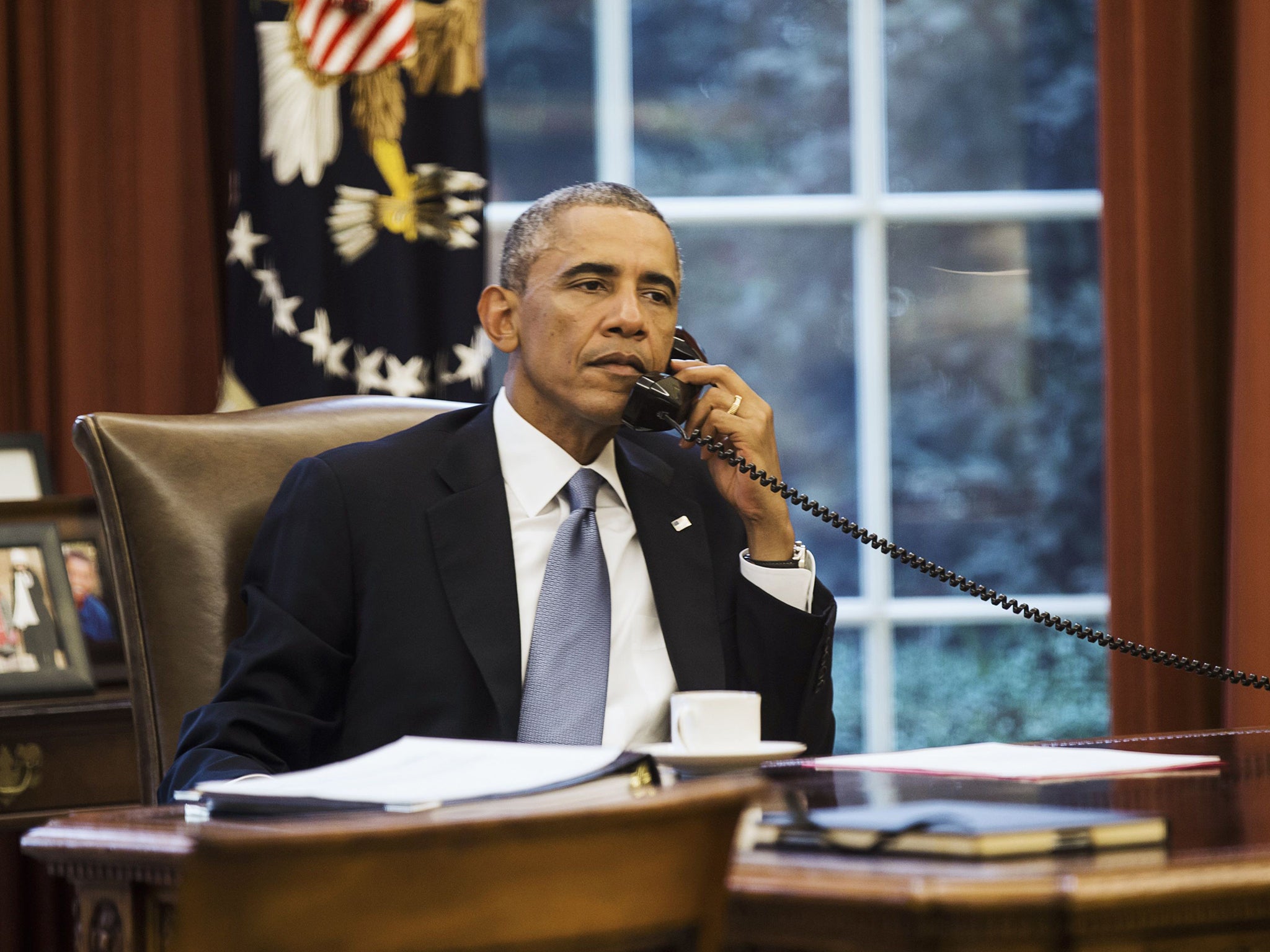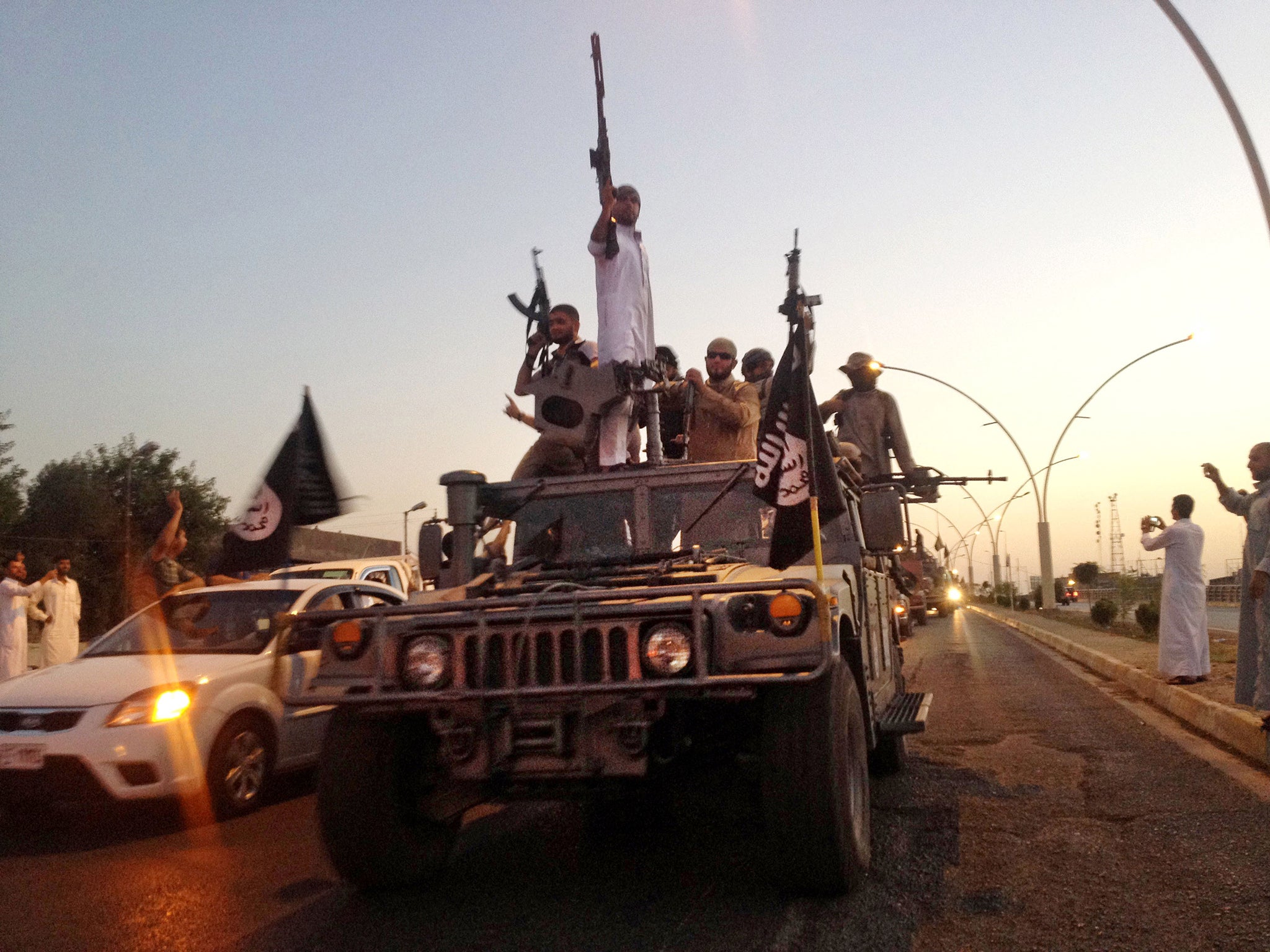Obama tries to sell another unwanted war to the US
After seeking to end America’s wars in the Middle East the President is now being forced to launch a new one


Your support helps us to tell the story
From reproductive rights to climate change to Big Tech, The Independent is on the ground when the story is developing. Whether it's investigating the financials of Elon Musk's pro-Trump PAC or producing our latest documentary, 'The A Word', which shines a light on the American women fighting for reproductive rights, we know how important it is to parse out the facts from the messaging.
At such a critical moment in US history, we need reporters on the ground. Your donation allows us to keep sending journalists to speak to both sides of the story.
The Independent is trusted by Americans across the entire political spectrum. And unlike many other quality news outlets, we choose not to lock Americans out of our reporting and analysis with paywalls. We believe quality journalism should be available to everyone, paid for by those who can afford it.
Your support makes all the difference.It was the speech that Barack Obama didn’t want to give – and it showed. He was, as usual, analytical and cogent in his primetime address on Wednesday evening, explaining why he was authorising a stepped-up campaign against Isis.
But there was no concealing the uncomfortable fact: this was the president who had sought to end America’s wars in the Middle East being forced to launch a new one, perhaps even more complicated and uncertain.
Right at the start of his 15-minute speech, he stressed how he had pulled 140,000 troops out of Iraq and was ending the US combat mission in Afghanistan at the end of this year. First and foremost, in other words, he was not George W Bush.
“I want the American people to understand how this effort will be different from the wars in Iraq and Afghanistan,” the President declared. “It will not involve American combat troops fighting on foreign soil. This counter-terrorism campaign will be waged through a steady, relentless effort to take out [Isis] wherever they exist, using our air power and our support for partner forces on the ground.”
In fact, independent experts argue, success depends on variables beyond the ability of the US to predict, let alone control. They range from public opinion at home to Washington’s ability to muster a credible coalition in the region to complete the mission of “degrading and destroying” the militant group that now controls swathes of Iraq and Syria.
Since the start of Syria’s civil war in March 2011, Mr Obama had refused to intervene with air strikes and aid to moderate Syrian rebels, despite the urgings of the CIA and then-Secretary of State Hillary Clinton, arguing that such a course would enmesh the US in another conflict in the Arab world. Now he is doing precisely that.
But how will he help moderate rebels overcome Isis without indirectly bolstering President Bashar al-Assad, whom the US is committed to toppling? Can Haider al-Abadi, the new Iraqi prime minister, create a genuine government of national unity, encouraging moderate Sunnis to take on the extremists? Can an effective regional coalition be forged? Meanwhile, the attitude of Iran, sworn foe of Isis, but a key backer of Assad, is anyone’s guess, analysts say.

Mr Obama understands all these perils. Moreover, although his approval rating has tumbled to 40 per cent, he appears to have the country broadly behind him. War weary they may be; but shocked by the barbarities of Isis, Americans now believe, by a majority of two to one according to a recent Wall Street Journal poll, that the US must act.
An otherwise paralysed and polarised Congress also seems ready to go along.
“It’s late, but we ought to be supportive,” Rob Portman, a former top Bush administration official and member of the Senate’s Homeland Security committee, said yesterday – reflecting a widespread view that Mr Obama should have acted weeks or months ago.
Even so, problems of authorisation could arise.

The White House insists it already has authority to hit Isis everywhere, but Mr Portman, a Republican moderate, believes Congress must approve action in Syria. The question of an international mandate was also unclear.
Russia, the other main supporter of Mr Assad, is demanding a United Nations Security Council vote, while France, a strong backer of action against Isis in Syria, insists it will only take part if that international law is behind it. A crucial moment could come in two weeks time, when President Obama will chair a security conference of world leaders at the UN General Assembly.
But even then, “defeating [Isis] on the ground in Syria may well be impossible”, says Anthony Cordesman, a leading analyst at the CSIS think-tank here.
Nonetheless, President Obama’s strategy is the “best game in town”, he added, “if he fully implements it, gives it the necessary resources, and sustains it over time”.
Join our commenting forum
Join thought-provoking conversations, follow other Independent readers and see their replies
Comments